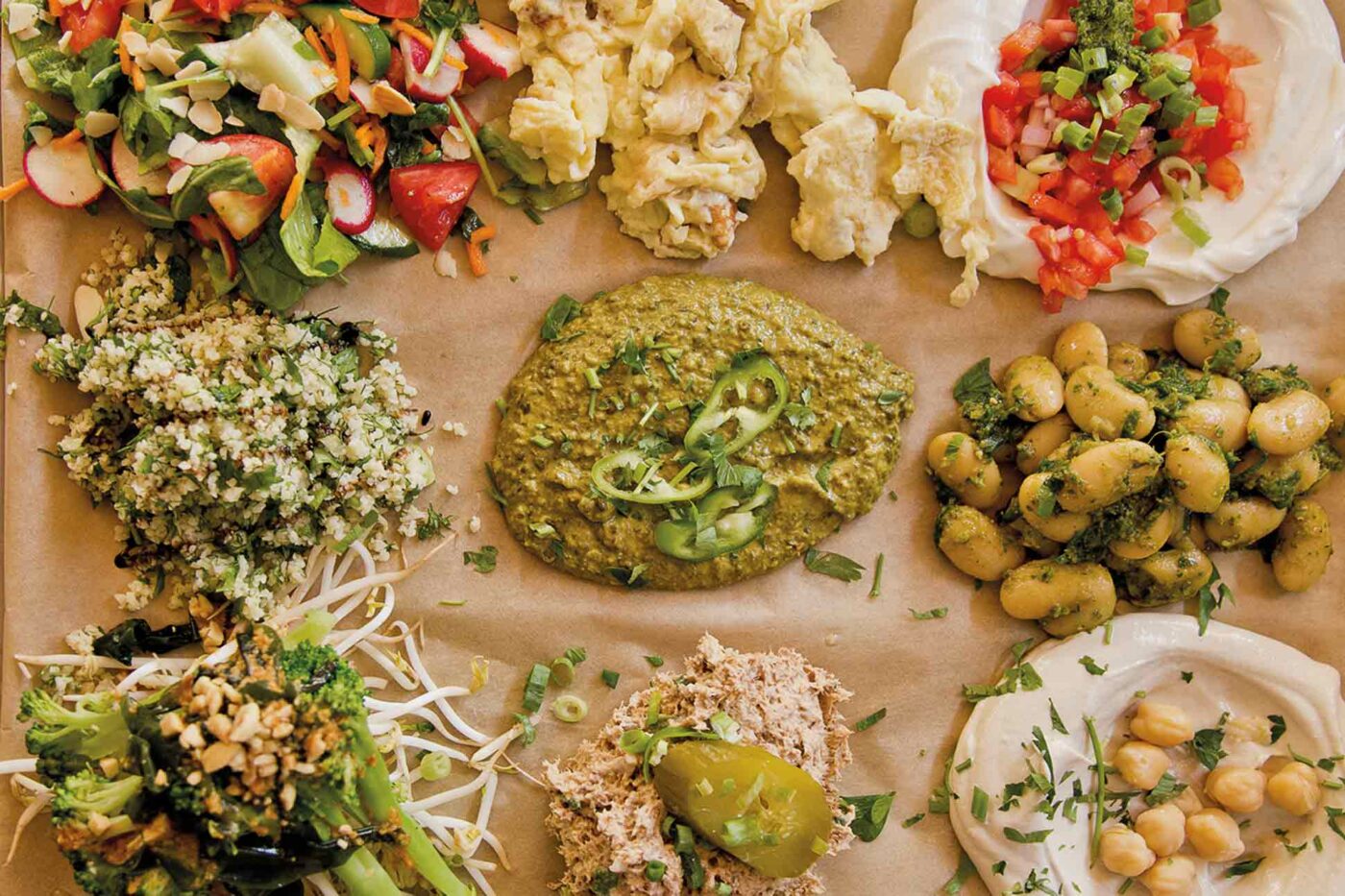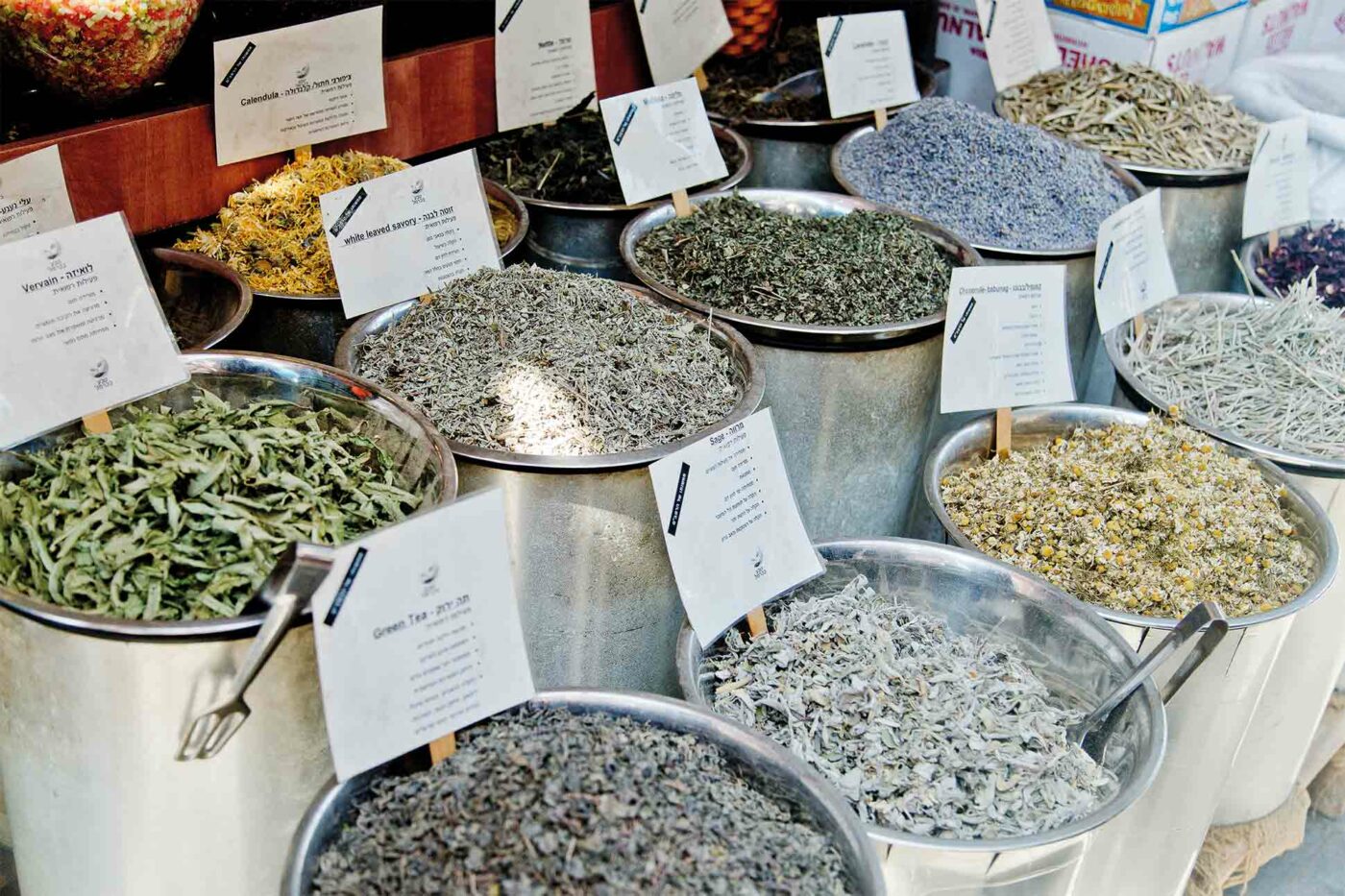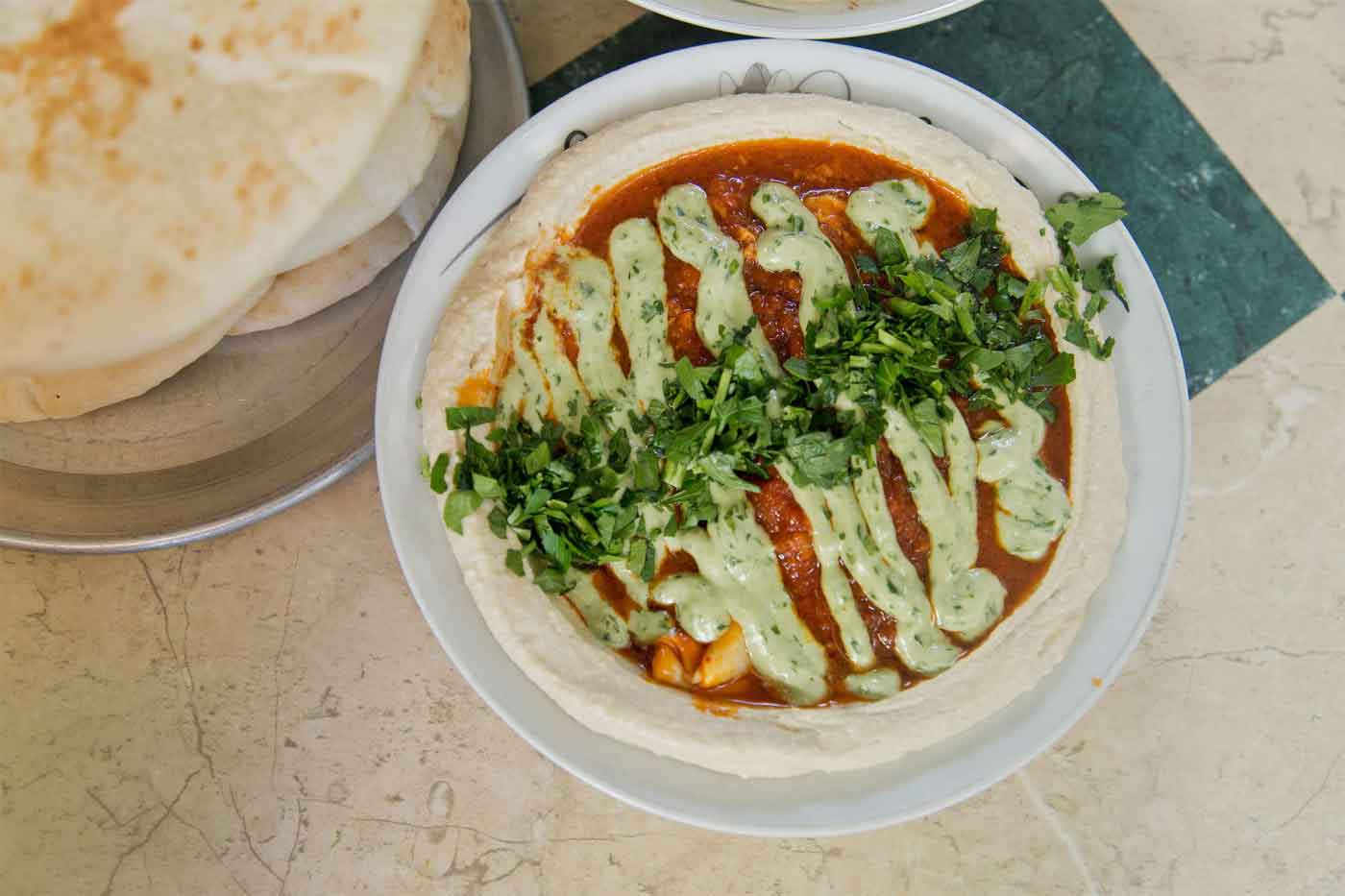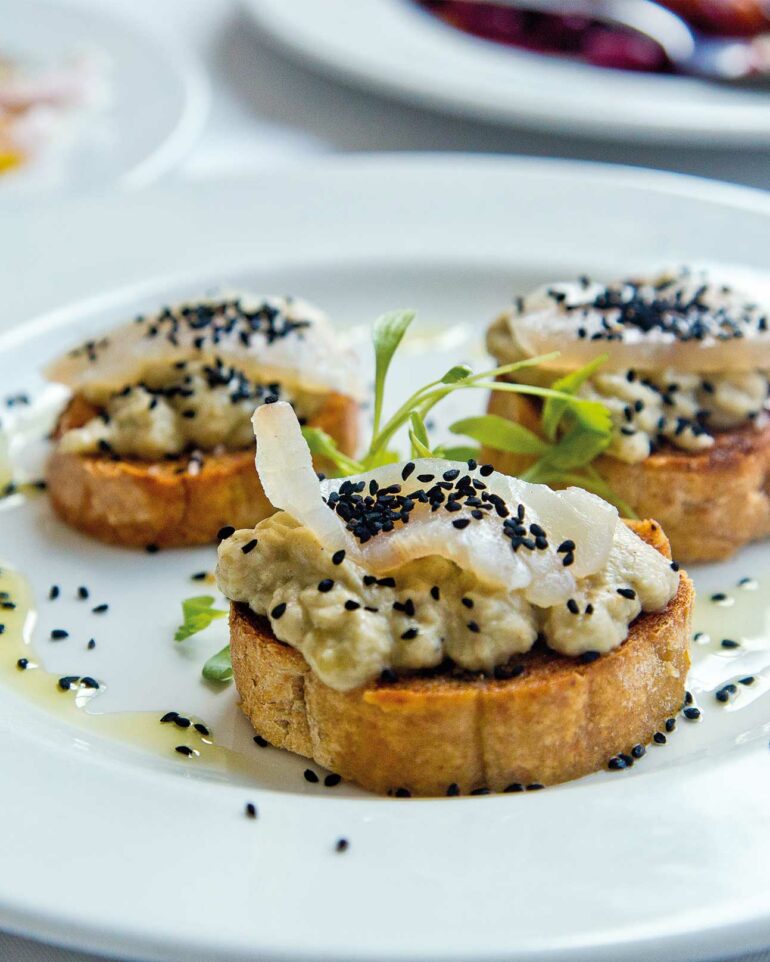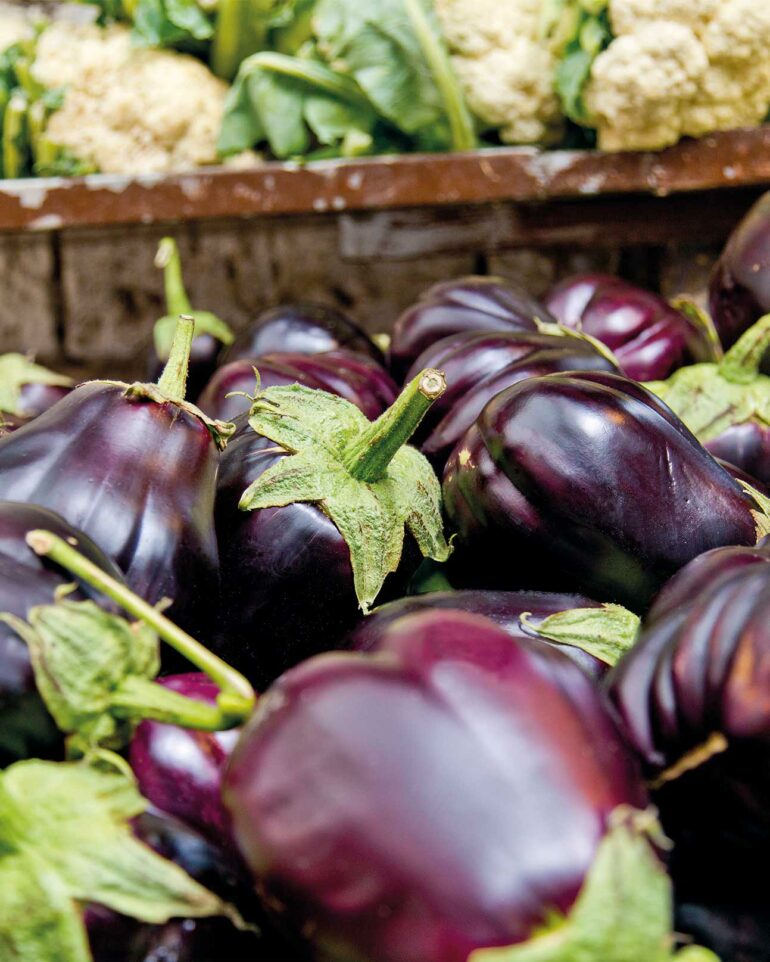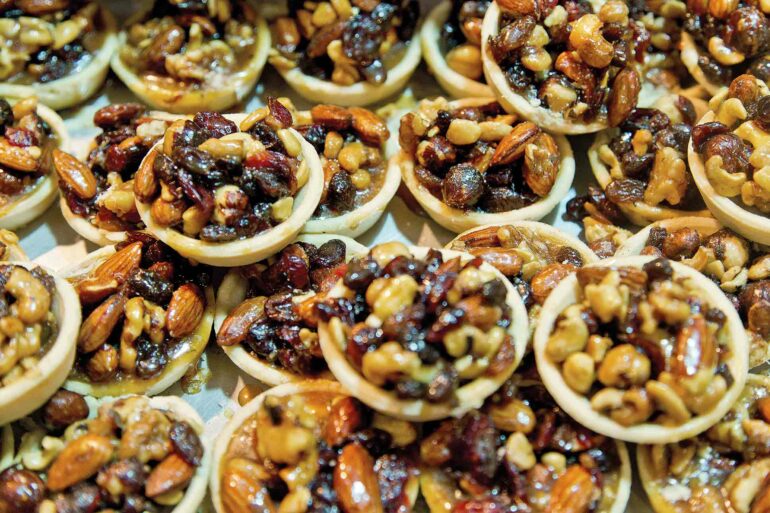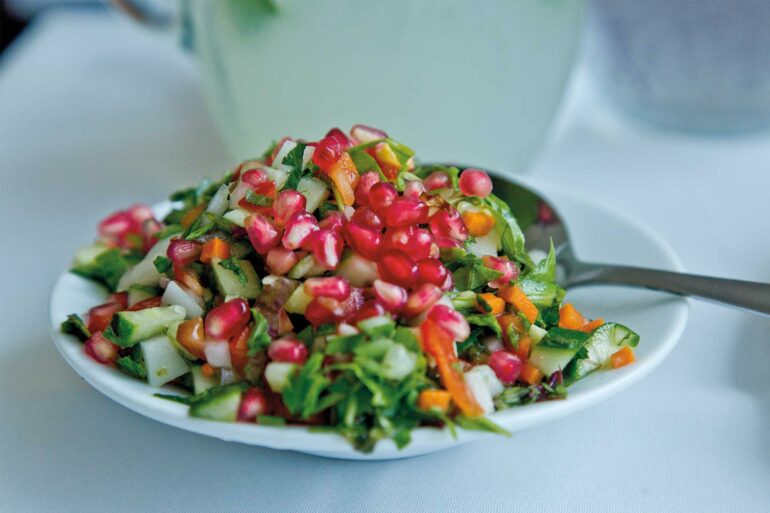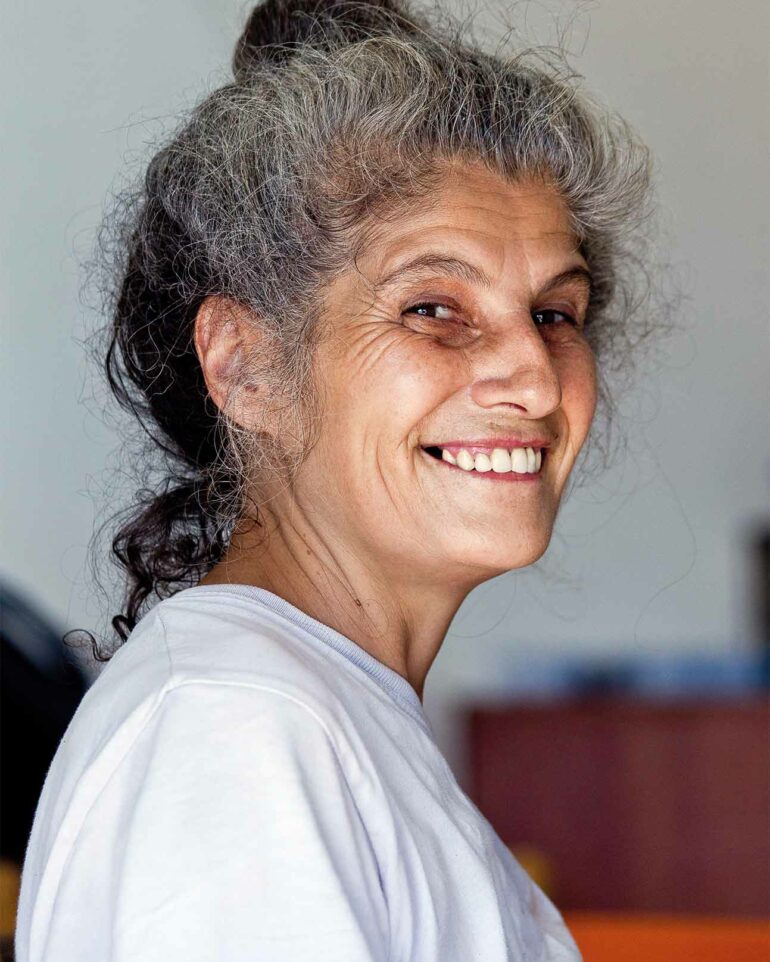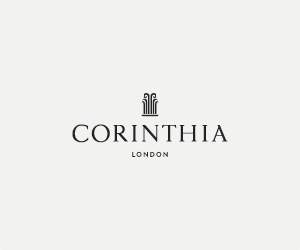We plough into the first bowl. It’s their standard hummus and it is a delight. Then we have mesunlash, made with whole chickpeas and loads of tahini sauce, served on top of creamy hummus. Finally, we try the shakshuka-hummus, a new idea where the chefs sit piping hot shakshuka over their regular hummus. I rip off some pitta – sorry onion, I heart carbs – and get dipping. The bread pierces the egg. It breaks. Joyous yellow yolk oozes over the spicy tomato sauce. I keep dunking, pushing on into the creamy concoction and take a huge bite. It is so insanely good, the contrast of the hot egg and cold hummus is off the scale. This is a food-first for me and I am all over it, greedily digging out massive spoonfuls and ‘umming’ and ‘ahhing’ like I’m at a fireworks display. It’s such a clever combo and another example of how an age-old recipe can be given a new lease of life with such a simple twist.
“Many get fiercely territorial about where hummus comes from. My brunch time Insta-post turns into #HummusWars.”
After our heavenly hummus experience, we stroll over to Shuk Ha’Carmel, the city’s biggest food market. It’s packed with butchers, fishmongers and fruit and vegetable traders. There’s an absolutely electric atmosphere to the whole place. The sides are lined with stalls selling everything from Yemini breakfast to delicious craft beers and chewy nougat. We walk and talk and eat, stopping to adore and graze on some sticky, sweet rugelach pastries and cheese straws at Inbal’s favourite baker, Lechmaier. She tells me how the cuisine has built up from the land and the people. Her grandmother arrived in the 1930s. Back then, she ate what she could cultivate: vegetables, fruit, eggs and cheese. As well as the produce they could grow, there was also the food found in Arabic villages, which – like hummus and falafel – was adopted into the Israeli diet to become everyday staples. Then the people. Jews came to Israel from all over the world: Iraq, Iran, Turkey, Algeria, Poland and Russia.
The list goes on, she tells me. Each Jewish community that arrived brought their own style of cooking and each had their own personal touches; and countries that were once segregated, melted together. Tel Aviv rapidly became a place united by cooking.
Today the food is all about the freshness of the ingredients. Field to fork dining is massive, although local chefs wouldn’t ever term it in that way – all cooking in Israel is field to fork. Different cuisines have amalgamated, ideas and techniques have been updated and exchanged, and spices swapped and added. New, young chefs are fancying-up traditional recipes and adopting influences from across the world, particularly South-East Asia, Mexico and Italy. Israeli cuisine has become purposefully undefined and this fusion of old cuisines and new ideas is what makes the food here so fantastic. So it seems that the thing about Israeli cooking, particularly in Tel Aviv, is that it isn’t all that ‘Israeli’; instead influences come from all over and literally contribute to the big, hot melting-pot.
Inbal takes me to see Irit, who runs a tiny café on the side of the market. Irit is of Yemenite descent, with a large and infectious personality. As I arrive, she is still serving breakfast to a throng of hungry customers. I watch keenly as she expertly whips up a batch of lachooch, pancakes of a simple batter, flavoured with fenugreek. She swirls the mix around an ancient frying pan until it sets and then tops it with scrambled egg. She folds the pancake in half and grates over a little fresh tomato, before serving it with spicy zhoug. It’s divine.
“Each Jewish community that arrived brought their own style of cooking.”
Inbal explains that I am a chef, and before I know it, Irit has me prepping pancakes for the mid-morning rush. She studies my technique, but seems pleased, as the next thing I know, she runs off, leaving me in charge of her kitchen to feed several hungry diners, before returning with hot coffee for us both twenty minutes later. When noon comes and the kitchen closes, the fun begins. She cranks up the disco music and has us dancing and singing out loud while she teaches me how she makes her infamous eggplant dish – delicately slow-roasted whole on the stove, then coated in lemon, garlic and tahini. I’m told that the recipe has been a secret, but I guess her showing me was pay for my morning’s work.
That night I head to celeb-chef Eyal Shani’s restaurant, North Abraxas, which Inbal describes as truly modern Israeli cuisine. He has restaurants all over the city that are known for their mouth-watering menus and party vibes. It doesn’t disappoint. I sit at the counter and order several dishes, including his infamous cauliflower. It arrives whole and blackened, the leaves still on, all charred and chewy from the oven. The chefs are dancing around the open plan kitchen to a Balearic soundtrack. Suddenly the waiter in front of me grabs a bottle of liquor and pours everyone a shot. I sling it back and tuck into my next dish, a massive entrecôte steak. I love everything about this place, it sums up Tel Aviv as a city for me – infectious, utterly delicious and effortlessly cool.
OutThere’s culinary adventure through Tel Aviv is courtesy of Inbal Baum, who is the authority when it comes to food in the city, packing up her life as a high-flying lawyer (and yoga instructor) back in 2009 to start Delicious Israel, one of the country’s most enticing ways to explore what it truly means to be an Israeli through mouth-watering, intimate culinary crusades.
Photography by Martin Perry


